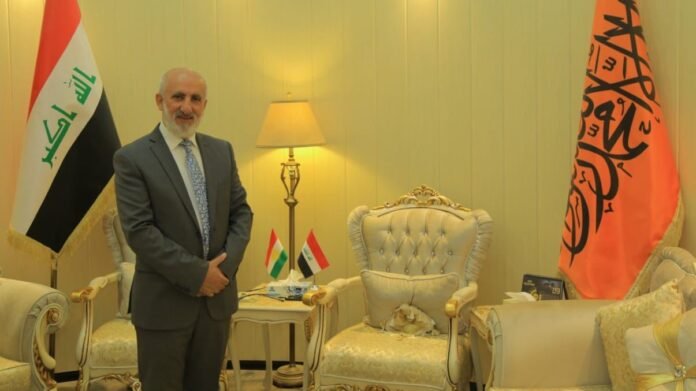An Erbil court issued an arrest warrant for former Iraqi lawmaker Ahmed Haji Rashid, intensifying legal pressure on public critics. Rashid, a member of the Kurdistan Justice Group (Komal), served in the Iraqi parliament during its last term. The warrant cites Article 226 of the Iraqi Penal Code, which punishes insults directed at official bodies.
The court sent the warrant to a Sulaimani court to enforce it, as Rashid resides in that province. Although the warrant was issued earlier, it became publicly known only recently. Rashid now faces the possibility of imprisonment, detention, or a fine, depending on court proceedings.
The legal pressure on public critics continues to stir debate across Iraq’s Kurdish political circles. The exact statement that triggered the arrest order remains unclear. However, Article 226 permits punishment of up to seven years for insulting the government, judiciary, or security forces.
Rashid has consistently criticized the Kurdistan Regional Government (KRG). In a recent interview with al-Ahad TV, which supports Iranian narratives, Rashid claimed that thousands of drones seized during the recent Iran-Israel conflict may have passed through the Kurdistan Region. This statement likely contributed to rising political tension.
A senior Komal official and close friend of Rashid, speaking anonymously, said Rashid will appear before a judge—if the court ensures independence. The source added that Rashid wants a trial free from political party interference.
The case adds to growing concerns over legal pressure on public critics in Iraq’s Kurdistan Region. Many activists and political observers fear that laws like Article 226 may suppress political expression. They worry such actions could deter opposition voices and silence allegations of wrongdoing.
This case also reflects wider tensions between Erbil and Sulaimani. Differences between ruling and opposition parties have deepened recently, especially over governance and corruption accusations.
By targeting a former MP, the arrest warrant sends a strong message about the limits of criticism in the Kurdistan Region. Rashid’s allies, however, remain firm in defending his right to speak out.
As the legal battle unfolds, both public reaction and international attention may influence the next steps. Meanwhile, legal pressure on public critics remains a visible challenge for democracy in Iraq’s Kurdish region.

